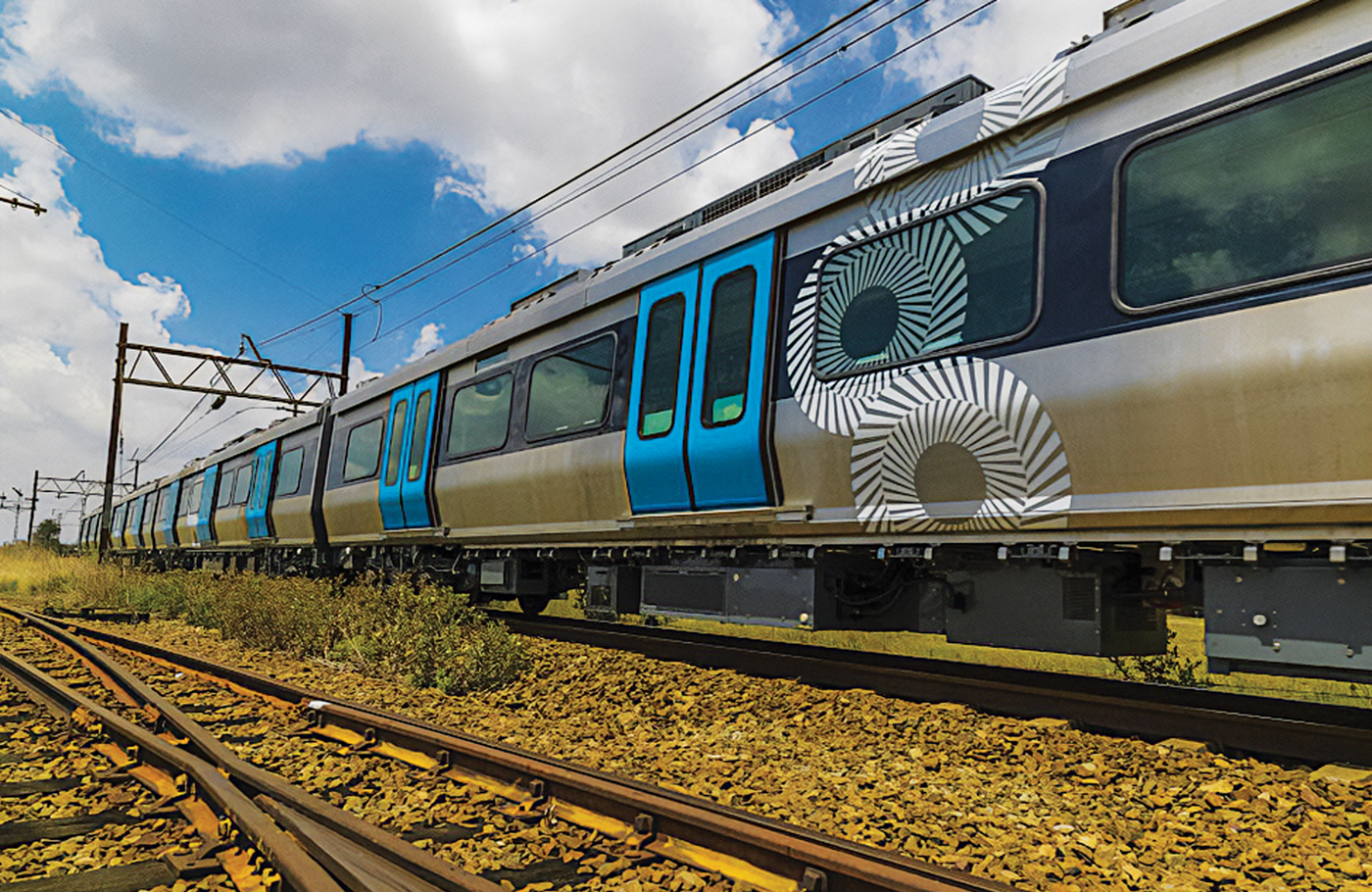SA desperately needs economic transformation of railways
SA desperately needs economic transformation of railways
The freight and passenger railway systems in South Africa are in a chronic state of disorder after more than 20 years of mismanagement, malfeasance, criminal looting, and wastage. NICK PORÉE says complete economic transformation of railways is desperately needed.
In the South African economic model, the private sector is responsible for managerial competence and responsibility, performance, wealth creation, and growth. The government, on the other hand, favours cadre deployment, corruption, business failure, and managerial immunity from consequences. Nowhere is this more evident than in the railway sector, which is in a chronic state of disorder.
The recent reflection by the Deputy President that maybe it is time to engage private sector competence to rectify the situation is at least 10 years overdue. That the Ministers – who are the owner representatives responsible for the public entities – are still in their jobs is an indictment of the government’s failure to appreciate the seriousness of the situation.
All the state-owned enterprises (SOEs) “managed” by the Department of Public Enterprises have suffered from the same lack of managerial competence and direction: Eskom, South African Airways (SAA), Transnet Freight Rail (TFR), all South African ports, and most of the other “business” activities of the government.
The succession of Ministers of Transport and their directors-general without any transport competence has totally failed to provide direction to the Passenger Rail Agency of South Africa (PRASA). The result is that PRASA has now been so vandalised that it is probably impossible and at least impractical to resuscitate it. Furthermore, the agency cannot compete with the mass of taxis that have filled the vacuum.
For any competent observer of the freight transport scene over the past 40 years, it is apparent that the only sensible systemic decision made by government has been to deregulate road freight transport. That move was forced by the negative drag of the railway monopoly on the economy of the country. The road freight transport sector provides the main logistical support for production, imports, and exports. Continual restructuring, attrition, and incompetence have left the railway with a bleak future as a logistics provider, dependent on coal and iron ore, as well as a few captive bulk commodities. Most South African industries have long ceased to either consider railway usage or provision for rail freight in their logistics planning.
Transnet posted a loss of R8 billion in 2021, after losing the coal export industry nine million tonnes (mt) of exports. Total freight rail volume performance declined to 183,29 mt – 13,66% lower than the 212,3 mt of 2020, a decline that has been ascribed to the Covid pandemic.

There were contractions in most sectors in 2021 compared to the previous year:
- General freight volumes declined by 21,72% (63,4 mt in 2021 vs 80,99 mt in 2020)
- Export coal declined by 7,76% (66,9 mt vs 72,53 mt)
- Export iron ore declined by 9,77% (53,0 mt vs 58,85 mt)
It is, however, noteworthy that the continual failure of the railways to provide the services required by South African industry led to increased road freight usage in 2020, with a less than 1% reduction in truck traffic on the N3 corridor despite the contraction of the economy. So much for the continual mantra of road-to-rail; the railway has neither the capacity nor competence to engage in competition, and no longer has the protection of being a monopoly. Recent posturing and advertising aimed at attracting international and local private investment must be regarded as planned disinformation when considered against the background of the current chaos.
The TFR annual report in 2021 consists of a long litany of disasters, derailments, cable theft, customer dissatisfaction, skills shortage, and the need for capital. The responses are a plethora of promised actions to “reform the railways” and correct the problems, most of which sound like echoes from the past 20 years of reports. There is minimal detail of how the reforms are going to suddenly materialise, given the urgency and the current limitations of finance and competence.
One can sympathise with current employees. Many of the older generation have seen all of this happening but are impotent to control the actions of management and the Board, while they also had nothing to do with the wholesale plundering undertaken by executives. Restructuring the railways will at least provide hope of increased business and employment prospects in an expanding industry.
The solutions are drastic but simple:
- Change government SOE policy to encourage commercial competition.
- Separate government track ownership from commercial train and terminal operations.
- Create a genuinely liberated framework for equitably regulated competitive train operations run by SOEs and private companies.
- Disaggregate Transnet and PRASA into operational companies in terms of the Companies Act, with shareholding by government, private sector, and employee trusts.
- Place all transport under one competent Minister, disband the “Boards” and appoint qualified general managers for each company, who are answerable to the Minister and parliament.
- Restructure the Department of Transport and activate the Road Freight Strategy approved by Cabinet in 2017.
It must be noted that the same approach is urgently needed to rescue the ports and improve international logistics capacity to support industrial growth, private sector investment, and employment. The current deterioration of services by Transnet is threatening the viability of some of South Africa’s core export industries and reducing the country’s competitiveness. This is happening in the face of increasing international competition and record capital expenditure on mining and ports. Increasing costs and reducing throughput are very real threats to the future
of Transnet, which cannot be offset by simply increasing tariffs.
Published by
Nick Porée
focusmagsa




